Van Conversion Specialist Benefits From Supplier’s Faster Delivery Times
Powerful automatic nesting in RADAN CAD/CAM software achieves a sheet metal subcontractor’s target for its raw material utilisation as part of its Smart Factory vision.
Alpha Manufacturing provides a full range of sheet metal services across a number of industry sectors, including automotive, agricultural, healthcare, retail, and electronics. The company was established in 1989 specifically to manufacture products for its sister company, Bri-Stor Systems, which had been set up six years previously. Bri-Stor is specialists in light commercial vehicle conversions, supplying internal racking, roof equipment, on-board power, and accessories.
Bri-Stor and Alpha Manufacturing share a 35-acre site at Hixon, in Staffordshire. Bri-Stor’s solutions comprise consultancy and design through to in-house manufacture, installation, and livery application. Customers range from those with just a few vehicles to hundreds and include many well-known UK fleets.
Modular products for standard conversions include options designed for particular sectors, while bespoke solutions create kits that are fully customised around the specific needs of the customer’s fleet. For example, the Vantage range is an innovative storage system that maximises the usable space within the van. Unlike most internal racking systems, this features an asymmetric design which allows up to three times more tools or materials to be stored.
Initially, Bri-Stor outsourced their sheet metal fabrication requirements, before the decision was taken to build up their own manufacturing arm with Alpha Manufacturing. Alpha’s Marketing Manager Chris Kidney, says:
“Originally we were dedicated to producing the van kit-out components for Bri-Stor, but fast-forward to today, and we now have a large portfolio of subcontract work, which actually outweighs our Bri-stor production.”
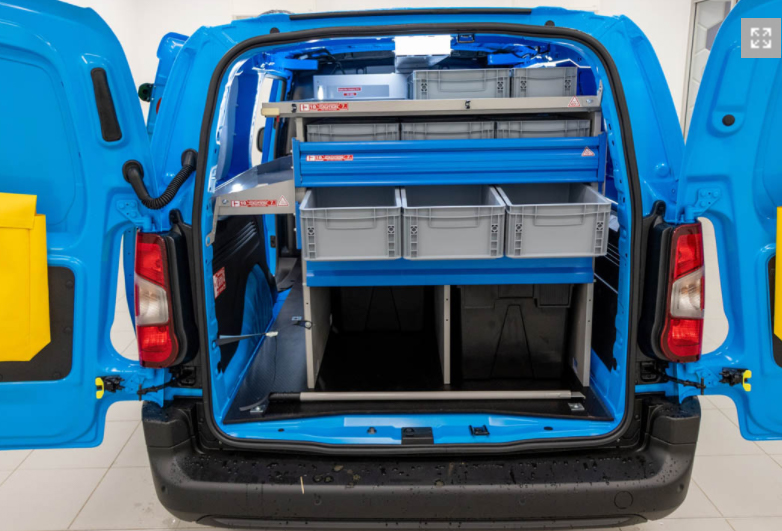
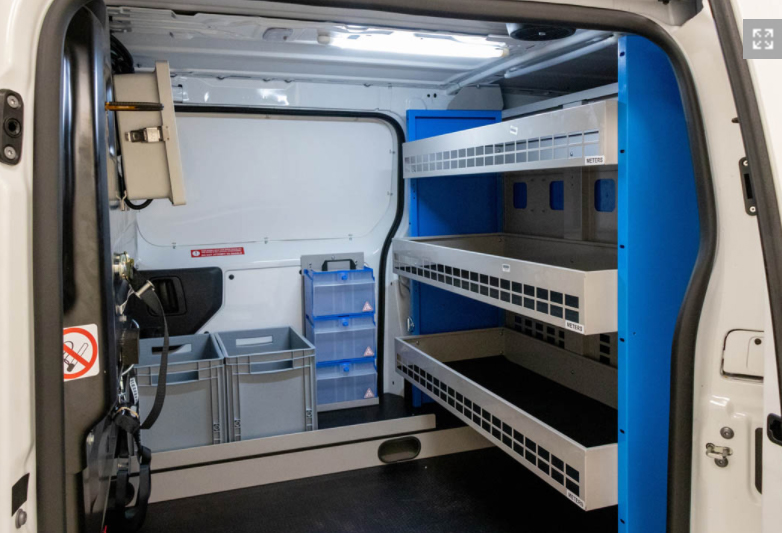
All components for both sides of Alpha’s business go through the dedicated sheet metal CAD/CAM software, RADAN, from Hexagon Manufacturing Intelligence. He says it’s extremely important that the parts are high precision, often needing to be within +/- 0.2.
The process begins with laser cutting and punching on Trumpf, Bystronic and Pullmax CNC machines programmed with RADAN toolpaths and nests, before moving through the factory for folding, fabrication, welding, powder coating and assembly.
“Our biggest challenge was meeting customer deliveries on time, which RADAN overcomes with its speedy programming, and by nesting components for individual van conversion kits on the same nest.”
Their team of three full-time programmers makes full use of RADAN’s powerful nesting functionality, analysing the true shape, material, and thicknesses of all components in a batch, separating and sorting automatically, to produce manufacturable, high utilisation nests both from full sheets and offcuts.
“As there’s no limit to nesting components of different sizes and shapes onto different materials and thicknesses, this delivers substantial material savings and improves machine efficiency.”
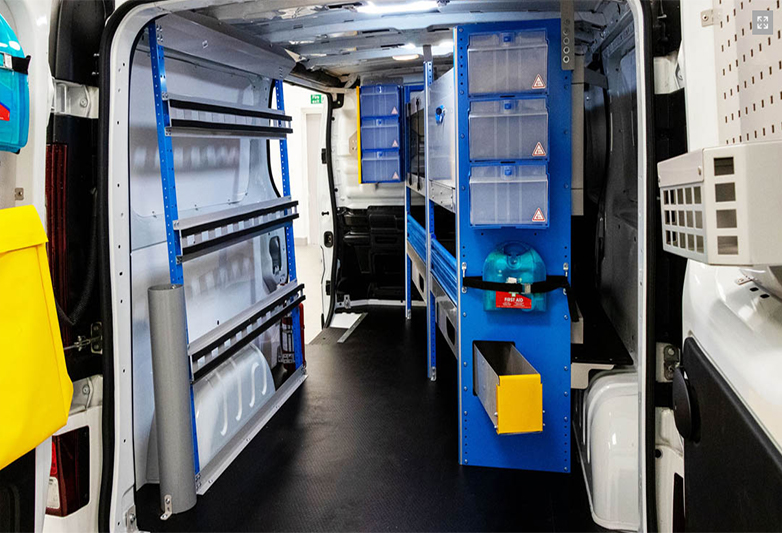
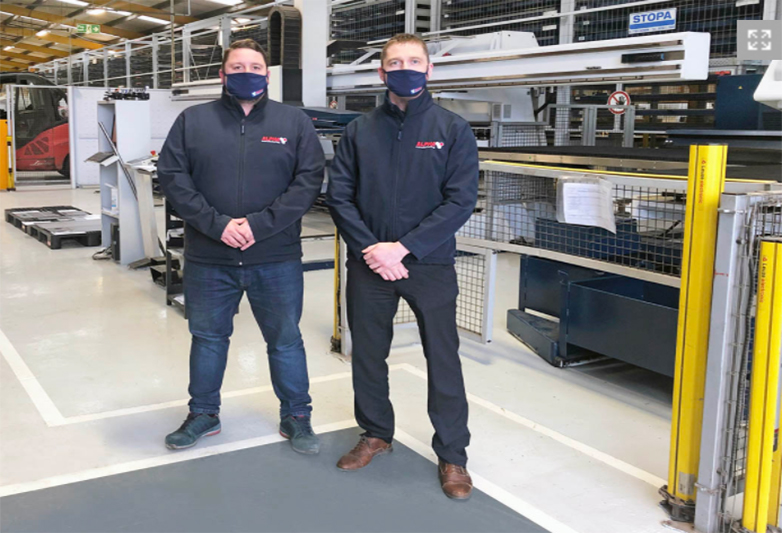
When the nests have been finalised and are ready for cutting, two of Alpha’s machines – a Trumpf TruPunch 6000 laser/punch combination machine and a Trumpf S12 punch press – can both feed off a Stopa automated storage system which leads to even greater efficiency and time savings. The entire Stopa now runs 62 metres down the centre of the factory, and contains 230 pallets capable of storing a total of around 600 tonnes of sheet metal. It manages the process of automating stock storage, and movement between machines, with all raw sheet metal stored in the towers and able to be called on at the touch of a button.
Programming Manager Mark Clews takes up the story: “At the very start of the process, our design team are given a SolidWorks drawing which they break down into a DXF file. This is then imported into RADAN. The programmers open the file, along with the nesting works order which tells them exactly what needs to be programmed. They put that into their nesting schedule…sorting it into parts of the same thickness and those of different thicknesses. The tool paths are applied at the nesting stage to maintain the quality and integrity of the parts, while optimising the cutting sequence, enabling the machine tool to perform to its fullest potential.”
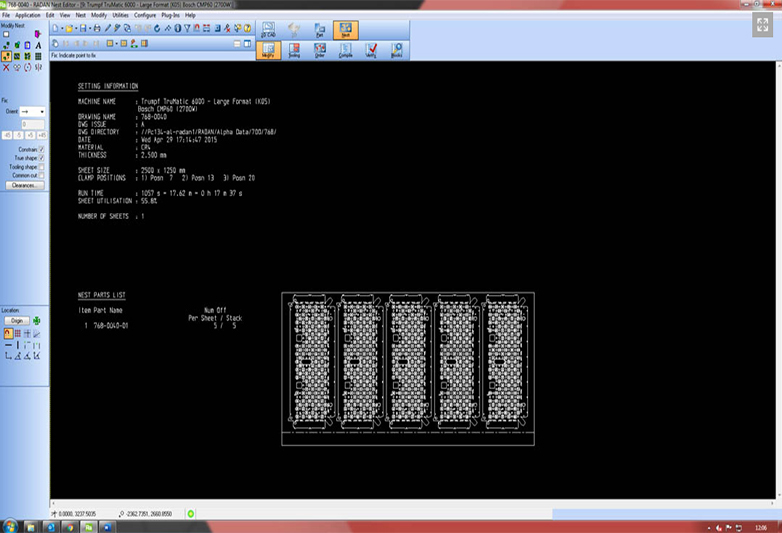
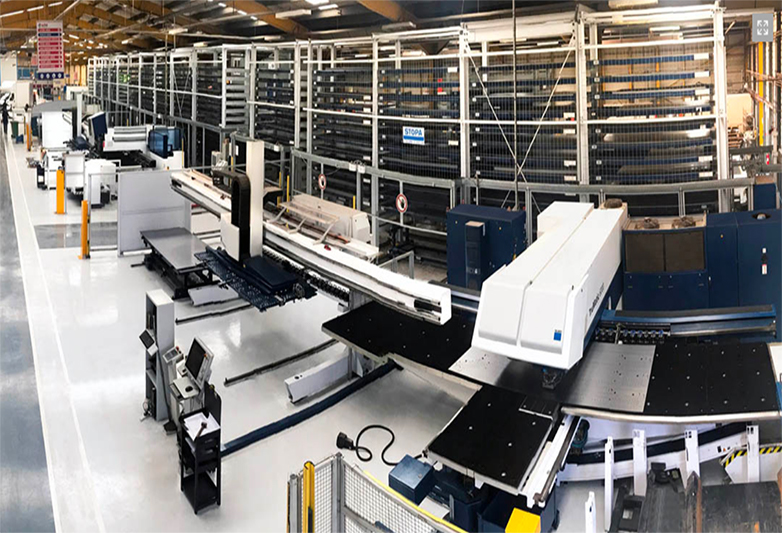
Chris Kidney says: “The fact that we can process the parts extremely quickly from the initial design to getting them on the shop floor ready for machining, has a significant effect on delivery times to Bri-Stor and sub contract customers, which in turn, improves our profitability.
“We’re currently pushing towards automation, high efficiency, and lean manufacturing. The focus of this plan is on utilising high-tech machine automation to realise a ‘smart factory’ vision. Now, close to £4 million has been invested to secure Alpha’s position as one of the most technically advanced factories in the industry. The Stopa storage system is a major part of that, and RADAN plays a vital role with quick, powerful automatic nesting and good sheet utilisation.
“We have a standard procedure that every sheet we nest must be utilised to a minimum per centage. And we achieve that, thanks to RADAN.”
